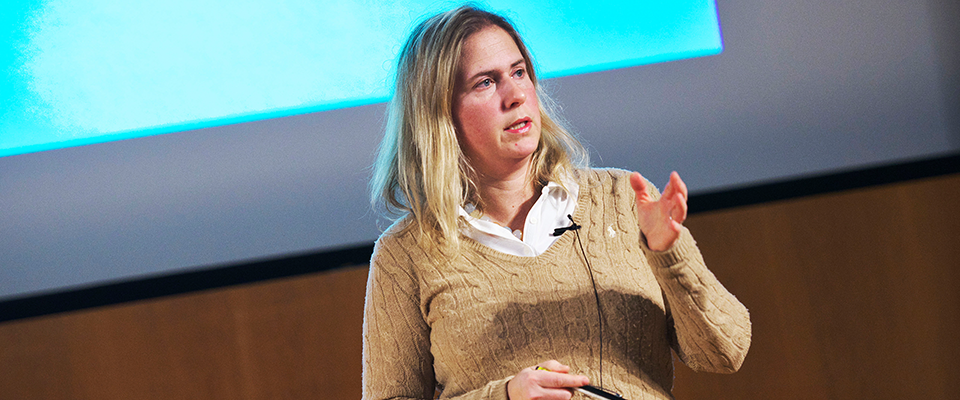
Championing Inclusion and Diversity at Biomedical Research Meetings
How can conferences encourage a supportive research culture where all can thrive?
The past few years have seen a growing awareness of various biases in research that can hinder the careers of women in particular. From fewer grants being awarded to female researchers, fewer women serving on editorial boards, fewer paper published, to fewer speaking opportunities at conferences, not to mention the so called ‘leaky’ pipeline in academia, one could say that women have a visibility problem in academia and research.
How can scientific conferences help reduce this ‘invisibility’ of women in research? Conferences, workshops and other gatherings providing unique opportunities for researchers to network and present their work to an international audience. This can lead to valuable and career-enhancing collaborations, while giving researchers access to emerging scientific ideas, and a group of potential mentors.
The crucial role that conferences have in developing a sense of a wider community outside the lab presents opportunities to address the biases that can limit women’s research careers.
What difference has Advanced Courses and Scientific Conferences made in promoting women in research?
As an internationally-recognised conferences and courses programme, with a strong ethos for developing capacity and enhancing careers, we introduced a gender-equality policy in November 2016. We recognised our responsibility to set the standard for increasing the visibility and voices of women across our programme. We wanted to promote a culture of inclusion and equal representation at our conferences; therefore, we mandated that 50% of our invited speakers, session chairs and programme committees (allowing some time for rotation) be women. We felt this target was a necessary step so our conference speakers reflected the audiences and communities they serve and to address the issue of ‘manels’ head on.
The implementation of this policy has led to a rapid change across our conference programme – within a year we had achieved our target of 50% invited female speakers (up from 34%), which was sooner than we anticipated and we continue to maintain this balance.
The reaction to this policy highlights how clear guidelines on equality can have huge benefits by broadening the participation of under-represented groups. By opening up more opportunities to women, we hope to level the playing field somewhat by increasing the visibility of women at our conferences. We have now rolled this policy out across our courses programme.
We hope by showing it’s possible to achieve gender-balance across our conferences, we can inspire others organising meetings or seminars within their institutes or universities to do likewise, so that together we can have a positive effect on wider research culture.
Dr Treasa Creavin, Scienctific Programme Manager, ACSC

Wider ambitions: supporting inclusivity
However, demonstrating gender-parity within conference programming is only part of the solution to tackle bias. Ultimately, such policies needs to be accompanied by actions that facilitate inclusivity.
This ethos has set the tone for our wider ambition to provide an inclusive environment that acknowledges conference organisers, funders and venues must be prepared to go a step further and offer child and parent-friendly facilities.
Parents working in research are often held back from participating at, and gaining from, international conferences due to a lack of childcare support options.
We have recently updated our parents and carer policy, giving caregivers the opportunity to bring their children along to conferences – enabling them to bring them into the talks and discussions, so parents can fully participate in the meeting they are attending.
Our colleagues in the Wellcome Genome Campus Conference Centre have created a dedicated family room for parents, to accommodate feeding and napping. Delegates can stay involved in scientific sessions as the talks will be live-streamed into this room. This new policy goes beyond our existing carer grant, which continues to support childcare, or extra costs for dependants, while delegates attend a conference or course.

